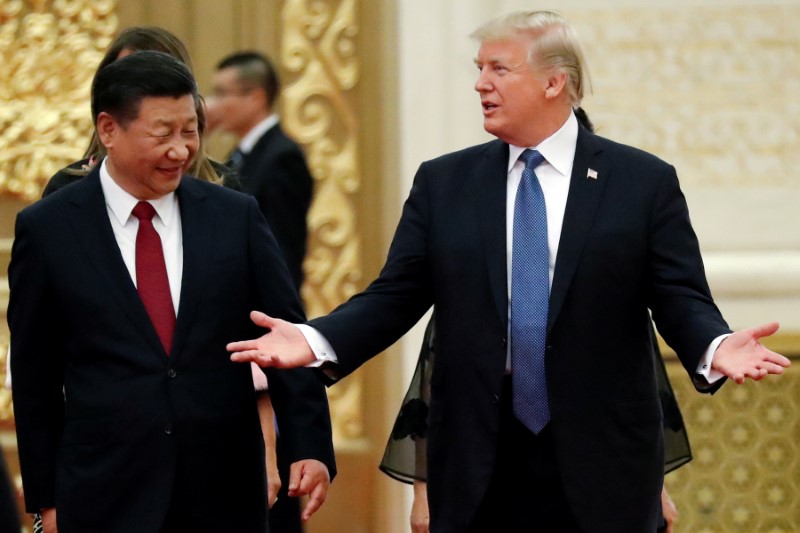Stock market today: S&P 500 climbs as health care, tech gain; Nvidia earnings loom
Investing.com -- Despite a tariff reprieve from U.S. President Donald Trump that sent global markets soaring on Wednesday, China, which received no exemptions but rather a rise in tariffs, and the U.S. continue to escalate their ongoing tariff dispute.
China raised its import tariffs on U.S. goods to 125% on Friday. This duty, an increase from the 84% announced by Beijing on Wednesday, is the latest escalation in the intensifying trade war between the U.S. and China and will take effect on Saturday, Beijing said.
CNN, citing sources, reported that just hours before China announced its retaliatory tariffs on Friday in response to Trump’s increase, the U.S. administration warned China against such a move, suggesting instead that Chinese President Xi Jinping request a call with Trump.
The trade war is expected to escalate further, as Xi stood firm, with state broadcaster CCTV quoting him as saying China “is not afraid of any unjust suppression,” according to CNN.
Investors breathed a sigh of relief on Wednesday when Trump announced a 90-day pause and a substantial reduction in tariffs to 10% for most trading partners. Previously, Trump’s tariffs applied to over 180 countries, giving countries more time to negotiate with the U.S., with officials noting that dozens of countries have approached them seeking deals. Trump and his administration have claimed that the pause was in his plan all along, serving as an attempt to isolate China from global trade and bring them to the negotiation table.
In Trump’s Wednesday announcement, he stated, “At some point, hopefully in the near future, China will realize that the days of ripping off the U.S.A., and other countries, are no longer sustainable or acceptable.” China has called the U.S.’s continual raising of tariffs “unilateral bullying and coercion.”
China reportedly did not reach out to schedule a call between the two presidents, and the tariff escalation was seemingly a surprise to the Trump administration, given their warnings. U.S. officials told CNN that the country will not reach out to China first, with Trump reportedly instructing his administration that China must make the initial move.
Officials suspect Xi does not want to appear weak by reaching out first. Trump, however, suggested he might be open to dialogue, saying, “China wants to make a deal. They just don’t know quite how to go about it,” during a Wednesday event at the White House. “You know, it’s one of those things – they’re proud people.”
